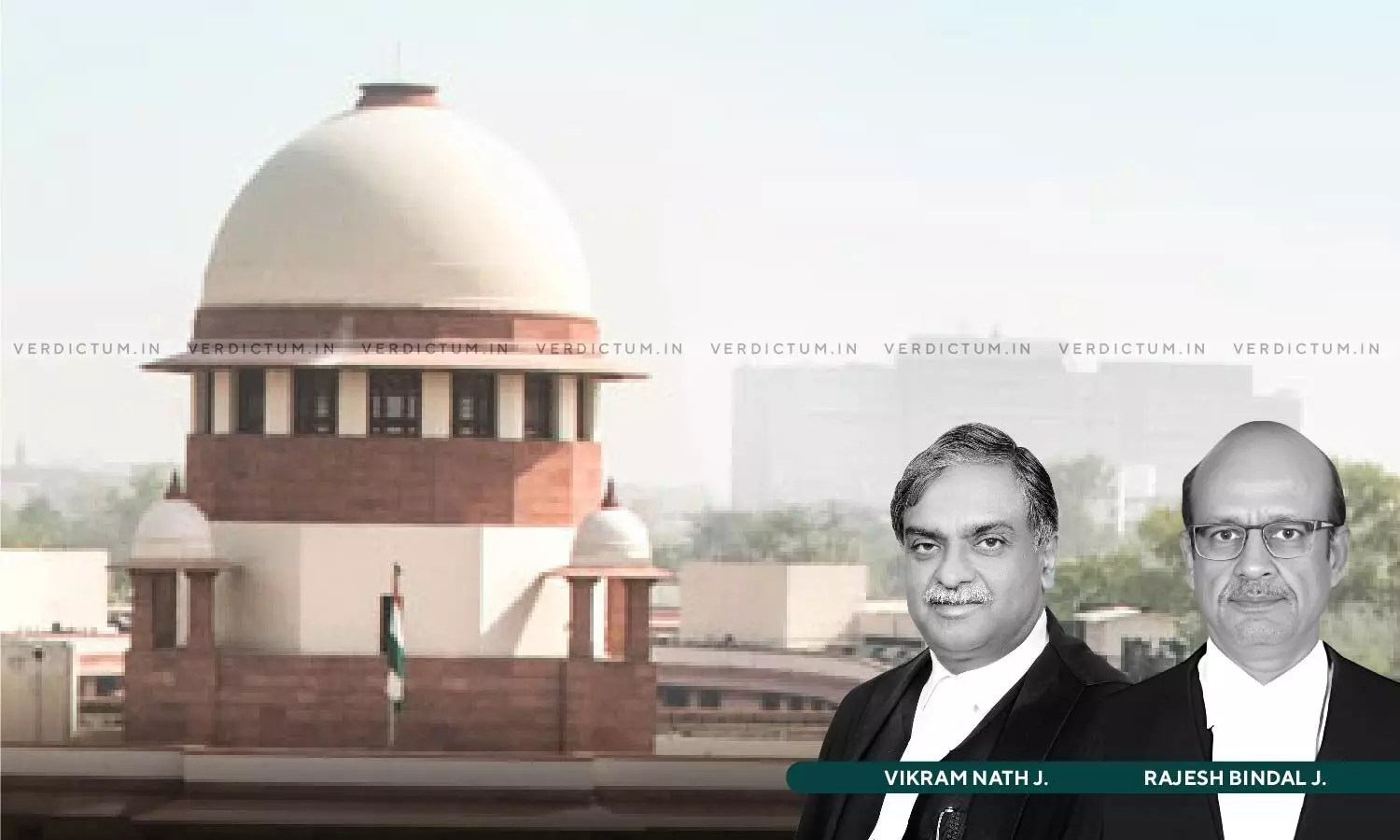
New Breed Of Litigants Go To Any Extent To Mislead Court; They Have No Respect For Truth: Supreme Court Expresses Concerns
 |
|The Supreme Court empahsized the paramount importance of truth as an indispensable element in the delivery of justice.
Expressing concerns, the Court addressed the prevalent issue of litigants engaging in misrepresentation and the deliberate suppression of facts during court proceedings.
The Court noted that materialism has overshadowed the traditional ethos, and the pursuit of personal gain has led to an intensified willingness among litigants to resort to falsehood, misrepresentation, and the suppression of crucial facts.
The Bench comprising Justice Vikram Nath and Justice Rajesh Bindal observed, “truth constituted an integral part of the justice-delivery system in the pre-Independence era, however, post-Independence period has seen drastic changes in our value system. The materialism has overshadowed the old ethos and the quest for personal gain has become so intense that those involved in litigation do not hesitate to take shelter of falsehood, misrepresentation and suppression of facts in the court proceedings”.
Advocate Pranaya Kumar Mohapatra appeared for the Appellant and Advocate Prakash Ranjan Nayak appeared for the State.
The accused, facing charges under the Narcotic Drugs and Psychotropic Substances Act, was subjected to an FIR resulting in arrest on February 3, 2022, along with a co-accused. Their initial bail plea met rejection on March 6, 2023. The appellant contested this rejection through a Special Leave Petition (SLP) in the Supreme Court. Simultaneously, the co-accused secured bail on January 17, 2023, unbeknownst to the ongoing SLP. The subsequent bail application by the appellant was dismissed on September 15, 2023.
Without notifying the Supreme Court, the appellant filed a second bail application before the High Court on September 21, 2023. The Supreme Court became aware of the second bail order only on November 8, 2023. The appellant's release came to light on December 6, 2023, prompting an inquiry. An affidavit on December 11, 2023, revealed a lack of disclosure in the appellant's second bail application regarding the initial bail rejection and the pending SLP before the Supreme Court.
The Court noted that this case was yet another attempt to contaminate the administration of justice. The Court referred to a previous judgment in the case of Chandra Shashi v Anil Kumar Verma [(1995) 1 SCC 421], which confronted a situation where an individual sought to deceive the court and disrupt the administration of justice. The Court had emphasized the importance of maintaining the purity of the administration of justice, noting that those who engage in fraud or deceit interfere with the judicial process and must be appropriately dealt with.
In K.D. Sharma v Steel Authority of India Limited and others [(2008) 12 SCC 481], the Court emphasised that an applicant who fails to present candid and truthful facts cannot hold a writ of the court with "soiled hands." Suppression or concealment of material facts is considered an abuse of the court's process and would not be tolerated. The Court may reject the petition or, in certain cases, proceed to address the matter on merits.
Furthermore, in Dalip Singh v State of Uttar Pradesh and others [(2010) 2 SCC 114], the court observed a decline in values among litigants who resort to falsehood and unethical means. The Court emphasized that those who attempt to pollute the stream of justice with deceitful practices are not entitled to any relief.
In Moti Lal Songara v Prem Prakash @ Pappu and another [(2013) 9 SCC 199], the Court addressed the issue of concealing facts before the court, asserting that such conduct amounts to playing fraud with the court. The Court emphasized that fraudulent intentions, including suppression of the truth, cannot be allowed to stand.
The Supreme Court observed that those involved in litigation now resort to falsehood, misrepresentation, and the suppression of facts in court proceedings without hesitation. “In the last 40 years, the values have gone down and now a litigants can go to any extent to mislead the court. They have no respect for the truth. The principle has been evolved to meet the challenges posed by this new breed of litigants. Now it is well settled that a litigant, who attempts to pollute the stream of justice or who touches the pure fountain of justice with tainted hands, is not entitled to any relief, interim or final”, the Bench noted.
The Court emphasized that the act of suppressing material facts in a court of law is tantamount to playing fraud with the court. The maxim "suppressio veri, expressio falsi" meaning the suppression of the truth is equivalent to the expression of falsehood, becomes applicable.
The Bench observed that this erosion of moral values in society may be attributed, in part, to our education system. “Now we are more happy to hear anything except truth; read anything except truth; speak anything except truth and believe anything except truth”, the Court added.
While each case's facts led to different outcomes, the Court observed the consistent effort by litigants to misrepresent facts and emphasized the importance of maintaining a high standard of professionalism and truthfulness in legal proceedings.
Accordingly, the Court dismissed the bail application and imposed a nominal cost of ₹10,000 on the Appellant.
Cause Title: Kusha Duruka v State Of Odisha (2024 INSC 46)
Appearance:
Respondent: Balaram Nayak and Chaitanya Chauhan, Advocates